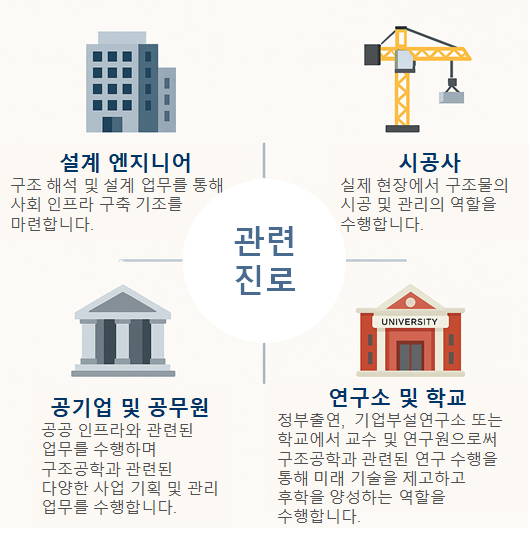- 홈
- About
About
About
Advanced Concrete Structural Performance Laboratory
어떤 연구들을 하고 있나요?
ACSP 연구실에서는 일반적인 정적하중 뿐만 아니라 충격, 충돌 및 폭발 상황을 모사할 수 있는 재료 단위 그리고 나아가 부재 단위 실험 을 수행합니다. 이러한 실험은 특수 실험장비가 필요하고 우리나라는 KOCED 프로젝트를 통해 서울대학교 극한성능실험센터에 극한 상황을 모사할 수 있는 세계적 수준의 실험 인프라가 구축되었습니다.
ACSP 연구실은 실험 인프라의 구축단계부터 참여하여 실험장비에 대한 높은 이해도와 이를 활용한 공동연구를 꾸준히 수행하고 있습니다.
실험 전, 후 단계에서는 해석을 통한 심층 분석이 요구됩니다. 대표적인 유한요소 해석프로그램인 LS-DYNA를 활용하여 실험 계획, 실험결과 검증, 매개변수해석 연구 등을 수행하고 있습니다.
실험을 토대로 각 종 실험장비의 실험 방법 가이드라인, 재료 및 부재 내충격성과 같은 구조적 성능 평가 방법 가이드라인 등을 제안하고 이를 발전시켜 기준화 하는 연구들을 수행하고 있습니다.
이를 바탕으로 각 종 사회 인프라 구조물의 성능 및 건전성을 평가하고, 관련 설계 기준들을 검토하고 개선해 나가는 것을 목표로 합니다. 또한, AI, 머신러닝과 같은 최신 기법들을 활용하여 접목시키는 연구들도 수행하고 있습니다.
어떤 진로들이 있을까요?

What research areas are you working on?
At the ACSP Lab, we conduct experiments not only under conventional static loading conditions but also under extreme events such as impact, collision, and explosion. These tests are carried out at both the material and structural component levels, requiring specialized experimental equipment. In Korea, a world-class experimental infrastructure capable of simulating extreme events has been established at the Extreme Performance Testing Center of Seoul National University through the KOCED project.
The ACSP Lab has been involved since the infrastructure development phase and possesses an in-depth understanding of the equipment. We have continuously conducted collaborative research utilizing these advanced testing facilities.
In both the pre- and post-experimental stages, in-depth analysis through numerical simulations is essential. Using LS-DYNA, a leading finite element analysis program, we conduct experimental planning, validation of test results, and parametric studies.
Based on experimental findings, we propose guidelines for experimental procedures using various testing equipment, as well as structural performance evaluation methods such as impact resistance of materials and structural components. We are also working toward standardizing these methodologies.
Ultimately, our goal is to evaluate the performance and integrity of various infrastructure systems and to review and improve relevant design standards. In addition, we are actively incorporating advanced techniques such as artificial intelligence (AI) and machine learning into our research.